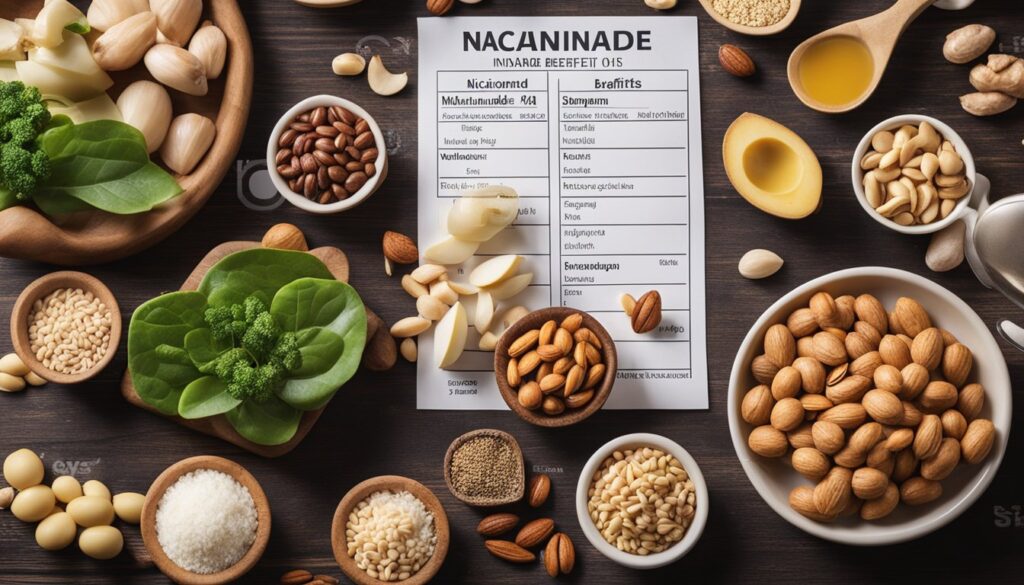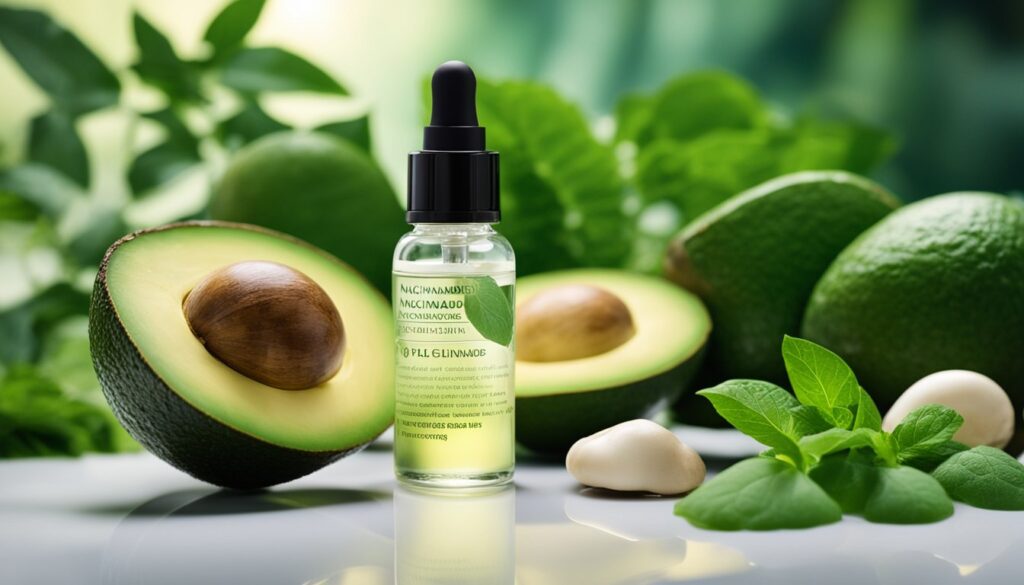Vitamin B3, also known as niacinamide, is an essential nutrient your body requires to function correctly. Unlike some vitamins, niacinamide is unique because it can be found in a variety of food sources ranging from animal-based products like meat and poultry to plant-based foods including nuts, seeds, and green vegetables. This vitamin plays a crucial role in over 400 enzymatic reactions within the body, impacting your skin, metabolic function, and even your DNA repair and stress response systems.

The benefits of niacinamide are manifold and directly impact your health. Regular intake can support skin health, enhancing its texture and appearance by reducing inflammation and redness, as pointed out by insights from the Cleveland Clinic. It can also boost your skin’s hydration by reinforcing its lipid barrier, which retains moisture and shields against pollutants. Beyond skincare, niacinamide is implicated in supporting cardiovascular health and aiding in managing blood sugar levels, contributing to a well-rounded health strategy.
To ensure you’re getting enough niacinamide in your diet, you should know that it’s abundantly present in foods such as chicken, turkey, salmon, and tuna. Additionally, some grains and cereals are fortified with this nutrient, and it’s also available as an over-the-counter supplement. Including these niacinamide-rich foods in your diet can help maintain your body’s vital functions and improve your overall well-being.
Dietary Sources and Absorption

In your quest for a healthy diet, understanding the sources of niacinamide and how your body absorbs it is crucial. This vitamin is an essential component of energy metabolism, and its presence in various foods can significantly influence your nutritional intake.
Niacinamide in Foods
Niacinamide, also known as Vitamin B3, is found abundantly in meat and fish, acting as a vital nutrient for maintaining good health. For instance, poultry such as chicken and turkey are rich sources, and so are certain types of fish, like tuna and salmon. If you prefer a plant-based diet, you’ll find niacinamide in green vegetables, nuts, and seeds. Moreover, whole grains and enriched grain products also contribute to niacinamide intake, though it’s noteworthy that animal-based products tend to contain higher levels of this nutrient.
Besides direct dietary intake, your body has a backup: it can convert tryptophan, an amino acid, into niacinamide with the help of other nutrients like zinc, copper, iron, and folic acid. So, a diet rich in these elements supports a healthy niacinamide status, even when direct sources are low.
Absorption and Conversion
When niacinamide enters your system through diet, your body immediately sets to work, beginning with absorption. This process primarily occurs in the small intestine, where niacinamide is absorbed efficiently into the bloodstream. Upon absorption, enzymes play a leading role in converting the vitamin into its active forms, namely NAD+ and NADP+, which are essential for energy metabolism.
The presence of key minerals like zinc, copper, and iron can influence the effectiveness of this conversion, highlighting how a balanced diet is fundamental for optimal energy production. Additionally, although your body can convert a percentage of dietary tryptophan into niacinamide, the process is complex and requires an adequate intake of other B vitamins and folic acid to proceed effectively. Therefore, enjoying a varied diet not only ensures direct nutrition from niacinamide but also supports the synthesis of this essential nutrient from tryptophan.
Health Benefits and Skin Care

Niacinamide, or vitamin B-3, plays a pivotal role in your overall health and has specific benefits for skin care. It’s a powerhouse for skin health, impacting everything from moisture retention to pigment regulation.
Systemic Health Effects
Niacinamide is a water-soluble vitamin with significant systemic effects. It’s integral to metabolism and helps your body convert food into energy. Adequate levels of niacinamide are required for the functioning of the digestive system, skin, and nerves, and it may help lower cholesterol levels. It’s also noted for potentially mitigating the risk of health issues like pellagra, chronic kidney disease, and type 1 diabetes due to its role in cellular health and metabolism.
Niacinamide in Dermatology
In dermatology, niacinamide has been recognized for its anti-inflammatory properties, which can alleviate redness and inflammation associated with conditions like acne, rosacea, and other inflammatory skin conditions. Studies suggest that it could help protect against skin cancer by repairing DNA and reducing the immunosuppressive effects of sun exposure, aiding in skin cancer prevention, especially non-melanoma skin cancers and actinic keratosis.
Skincare Products and Application
Using niacinamide in your skincare routine can bolster skin hydration and strengthen the skin’s lipid barrier, helping to prevent dry skin and trapping in moisture for those with sensitive skin. When applied topically, it can improve skin texture and reduce the appearance of dark spots, wrinkles, and fine lines. It’s found in various products such as serums, moisturizers, face masks, and cleansers. Before you use a new product with a high concentration of niacinamide, conduct a patch test to avoid any allergic reactions. Always consult your healthcare provider for advice tailored to your specific skin concerns.
Frequently Asked Questions

Niacinamide, also known as vitamin B3, is essential for your health and skin. These frequently asked questions address your concerns about dietary sources, skincare benefits, and safety measures.
What foods are rich in Vitamin B3 or niacinamide for a vegetarian diet?
Your vegetarian diet can include sources of Vitamin B3 like peanuts, mushrooms, green peas, and avocados. These foods provide niacinamide, which is vital for energy metabolism and maintaining good health.
How can niacinamide improve my skin health, particularly for acne concerns?
Incorporating niacinamide into your skincare routine may help manage acne by reducing inflammation and oil production. It’s known to fortify the skin’s barrier, improving texture and tone.
Are there any potential side effects associated with topical niacinamide use on the skin?
Some individuals may experience mild irritation when using topical niacinamide. To minimize risks, start with lower concentrations and patch test any new products on your skin.
What benefits can one expect from combining niacinamide with zinc in their skincare routine?
Combining niacinamide with zinc can enhance skin clarity by balancing oil production and diminishing blemishes. This duo is often used to target acne and promote a healthier skin complexion.
How can I mitigate any adverse reactions from taking niacin supplements?
To reduce the likelihood of adverse reactions, start with a low dose of niacin supplements and gradually increase as recommended by a healthcare provider. Always consult with a professional before beginning any new supplement regimen.
Beyond skincare, what are the overall health benefits of consuming niacinamide?
Consuming adequate amounts of niacinamide supports your neurological function, DNA repair, and metabolism. It may also aid in skin hydration and help in managing certain skin conditions.